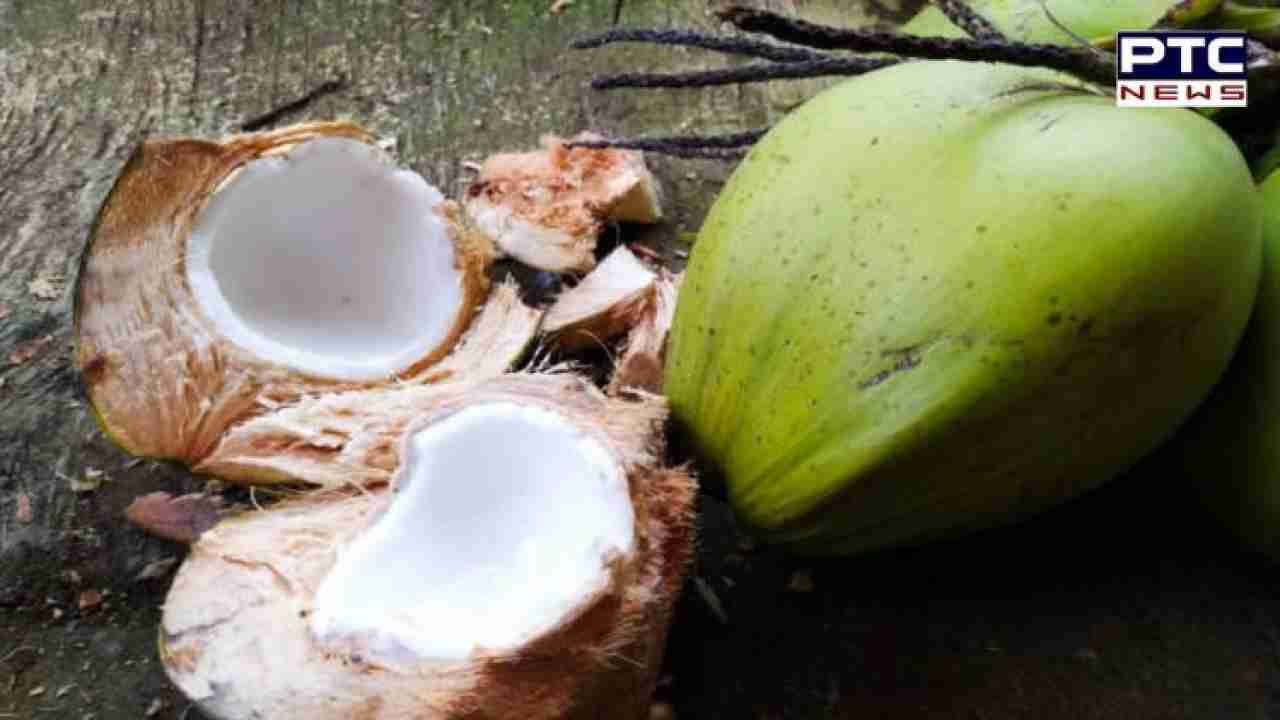

Beware! Consuming coconut water directly from fruit can pose significant health risks | Check Details
PTC Web Desk: Coconut water is often hailed as a natural remedy for combating heat waves and aiding digestion and urination. However, despite its refreshing taste and purported health benefits, consuming coconut water directly from the fruit may pose significant health risks.
Inside the coconut, particularly in warm and humid climates, there is a propensity for mold growth. Mold, a type of fungus, can thrive on various types of food, including the moist interior of coconuts. When consumed, mold-contaminated coconut water can lead to a range of adverse health effects, including allergies, severe respiratory issues, and potentially life-threatening consequences from mycotoxins.
Mold spores present in coconut water can trigger allergic reactions in sensitive individuals. Symptoms may include skin rashes, itching, swelling of the face, lips, tongue, or throat, and difficulty breathing. Those with existing respiratory conditions such as asthma may experience exacerbation of symptoms when exposed to mold-contaminated coconut water.
In addition to allergic reactions, mold exposure through contaminated coconut water can lead to severe respiratory issues. Inhalation of mold spores can irritate the respiratory tract, leading to coughing, wheezing, chest tightness, and shortness of breath. Prolonged exposure to mold may contribute to the development or worsening of respiratory conditions such as bronchitis or pneumonia.

One of the most concerning risks associated with consuming mold-contaminated coconut water is the presence of mycotoxins. Mycotoxins are toxic substances produced by certain molds and fungi. When ingested, mycotoxins can have detrimental effects on human health, ranging from acute poisoning to chronic conditions and even cancer. Common mycotoxins found in mold-contaminated foods include aflatoxins, ochratoxins, and trichothecenes.
Aflatoxins, for example, are potent carcinogens known to cause liver cancer and other adverse health effects. Ochratoxins have been linked to kidney damage and may contribute to the development of renal diseases. Trichothecenes can cause gastrointestinal symptoms such as nausea, vomiting, and diarrhea, as well as neurological effects including headaches, dizziness, and seizures.
Given the potential health risks associated with consuming mold-contaminated coconut water, it is advisable to take precautions when enjoying this tropical beverage.
- With inputs from agencies
